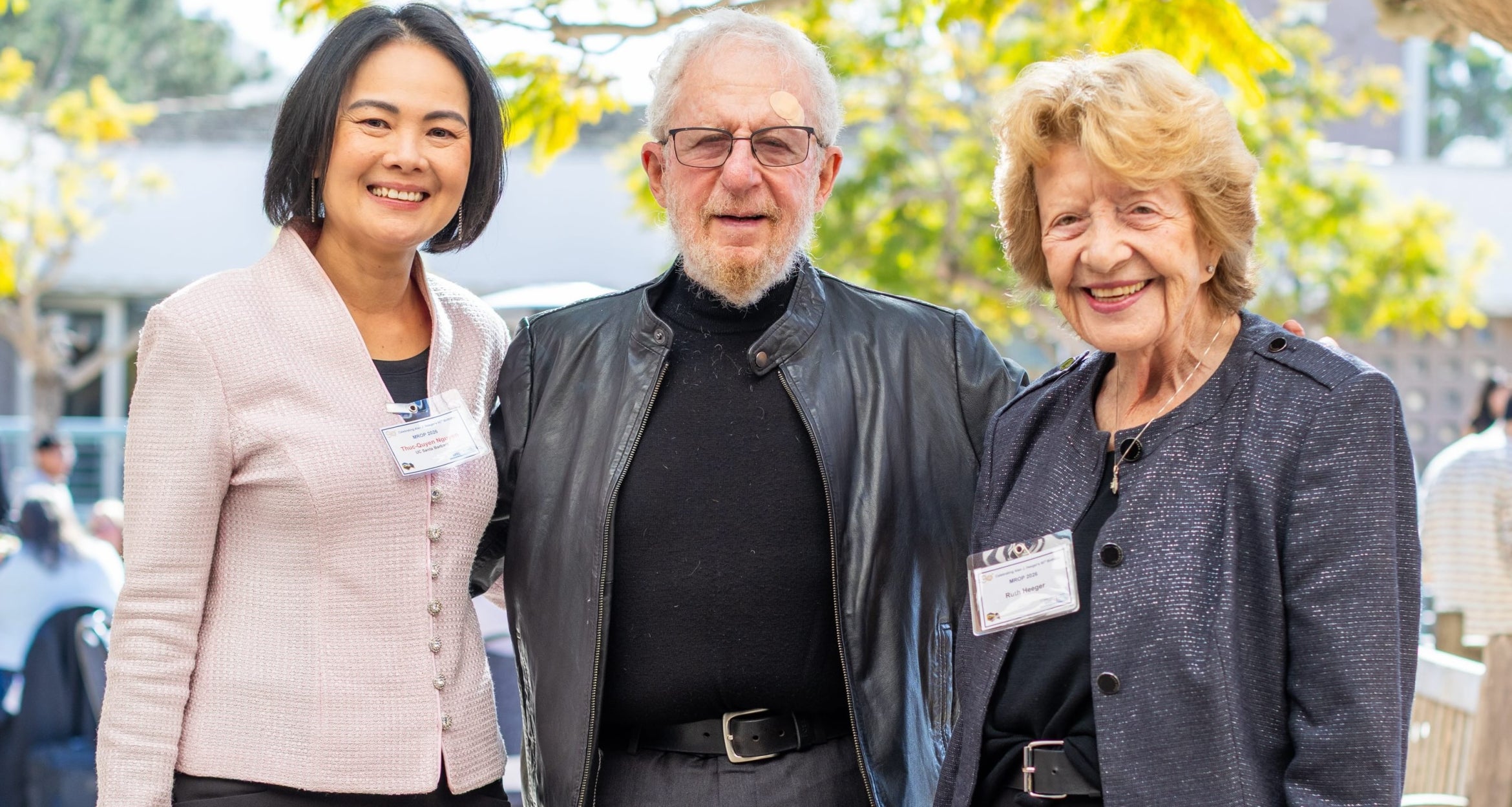Philanthropic gifts and pledges to UC Santa Barbara have reached an all-time high of $48 million during the 2000-2001 fiscal year ending June 30, showing significant gains in support for teaching, research, and programs.
The contributions from alumni, friends, corporations, and foundations increased by more than $17.5 million (nearly 60 percent) over the previous record year when philanthropy totaled $30.5 million.
"UCSB's eminence is directly enhanced by the growing generosity of our alumni and friends," said UCSB Chancellor Henry T. Yang.
"This has been an extraordinary year of notable milestones for UCSB in terms of increased philanthropic support and international recognition of UCSB's pioneering contributions to society."
Last year, the campus celebrated two new Nobel Prizes, in chemistry and physics, won by UCSB professors for landmark scientific research that ushered in today's Information Age.
There are now three Nobel Laureates on the distinguished faculty.
The campus was also selected to host one of the first three California Institutes for Science and Innovation.
Numerous corporate and philanthropic partnerships were established as a result of the California NanoSystems Institute, a research alliance between UCSB and UCLA that is expected to produce scientific advances in fields critical to the future of California's economy.
In 2000-2001, UCSB received a record 19,300 gifts.
New levels of support were also established for faculty research ($15.3 million), departmental support ($26 million), and student support and instruction ($3.8 million).
Major gifts and grants were received across the disciplines, including $10 million from UCSB Foundation Trustee Marilyn Gevirtz and her late husband, Don, to the Gevirtz Graduate School of Education.
In addition, foundation trustee Paul Orfalea, founder of Kinko's, and his wife, Natalie, contributed a total of $3.25 million to what is now called the Orfalea Family Children's Center and the Gevirtz Graduate School of Education.
"This exceptional year is the result of the generosity of donors who stepped up to new levels of leadership giving, and the expansion of substantive corporate partnerships," said Gary A. Greinke, associate vice chancellor for development.
"Significant interaction between campus colleagues and the leadership and involvement of Chancellor Yang and UCSB Foundation trustees helped make this possible."
Corporate support for technology transfer and education included the following philanthropic components: a total of $4.6 million from Mitsubishi Chemical Corporation, of Japan, for the Center for Advanced Materials and the Solid State Lighting and Display Center; $2.35 million from Stanley Electronics, of Japan, for graduate student support and research at the Solid State Lighting and Display Center; $1.2 million from Cree, Inc., also for the center; and
$2.7 million for engineering graduate fellowships, symposia, and equipment from Walsin Lihwa, of Taiwan.
Other gifts and grants included $1.5 million from the W. K. Kellogg Foundation to aid Latino education.
A number of donors established endowments, which will provide ongoing income.
A chair in the Institute for Theoretical Physics was endowed by UCSB Foundation Trustee Frederick Gluck with a $1 million gift.
Other endowments included $1 million from Jeff Henley, an alumnus, and his wife, Judy, to establish an endowed chair in economics.
"Private giving provides the margin that ensures UCSB's academic excellence," said John Wiemann, vice chancellor for institutional advancement, of which development is a part.
"These gifts and grants strengthen UCSB's standing as one of the world's great universities with a mission of superb education, groundbreaking research, and important and valuable community service,"
Today, state support accounts for approximately one-third of UCSB's total budget and is designated for fundamental expenses.
Private giving works in concert with the state's commitment.
This public-private partnership plays a significant and increasing role in building the university's reputation for scholarship, research, teaching, and the quality of its students.



